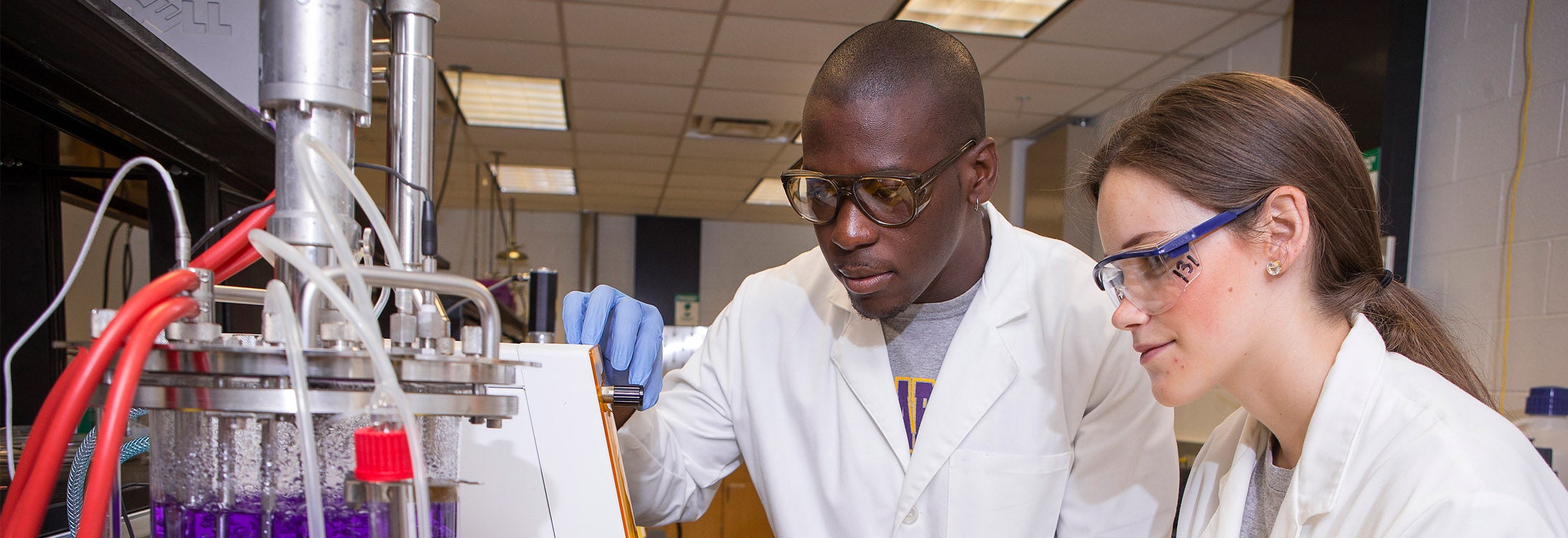Capstone Courses Provide Industry Benefits
East Carolina University’s Department of Engineering’s hidden gem is secret no longer.
Word about the department’s senior-level capstone engineering courses is reaching industries across eastern North Carolina, and many are utilizing the program to add value to their businesses.
 The year-long course challenges teams of seniors to complete an engineering design problem proposed by industry clients. The capstone course solves a specific need identified by the company, providing 600 engineering hours to the business. Projects can include design and manufacturing components, as well as modeling, analytical prototyping and lean manufacturing aspects.
The year-long course challenges teams of seniors to complete an engineering design problem proposed by industry clients. The capstone course solves a specific need identified by the company, providing 600 engineering hours to the business. Projects can include design and manufacturing components, as well as modeling, analytical prototyping and lean manufacturing aspects.
Projects sponsored by regional businesses have seen returns on investment ranging from $250,000 to $1 million.
Roy Johansen, associate director of engineering at Purdue Pharma in Wilson, N.C., was an early advocate of the department’s capstone projects. Johansen’s employers have funded at least one capstone team every year, with projects ranging from chiller replacement, air compressor optimization, water conservation, energy savings, and waste water treatment systems.
“Overall, I’ve been involved in 15 capstone projects, with 10 receiving funding,” Johansen said. “All of our funded projects have been subcontracted or awarded to local eastern North Carolina businesses.”
Johansen, who began his relationship with the Department of Engineering in 2006 as a member of its advisory board, said capstone courses provide opportunities for businesses to tackle projects that they’re traditionally unable to allocate resources toward.
“The big key is to find a project that’s important to the business, but you don’t have the manpower to make it a priority,” he said. “I’ve focused on projects that we’d like to get done and make an impact on our businesses, but we either can’t justify assigning employees to the project or paying design fees.”
The 30-plus year career engineer said his companies have also utilized capstone courses to identify and train potential leaders.
“We’ve used capstone courses multiple times to develop internal resources,” Johansen said. “Say you have an up-and-coming employee and you want to see what they can do leading a group. Letting them manage a student team through a capstone course gives them a big challenge. We not only measure how well the students do as part of the project, but how well employees can manage and lead. It’s a leadership development tool.”
“Our first capstone project received funding from both the company and from state government agencies,” he said. “It was our first attempt at a capstone project and it went fantastic. We’ve supported a project every year since. These projects help better the type of employee heading into the workforce and has raised the awareness of ECU engineering to the companies I’ve worked for.”
The Department of Engineering offers undergraduate degrees in six areas of concentration including biomedical, bioprocess, electrical, environmental, industrial and systems, and mechanical engineering.
Learn more about the school’s senior capstone projects and find out how you can request a project for your business by contacting Director of Industry Initiatives Brandon Morrison at morrisonb17@ecu.edu.
